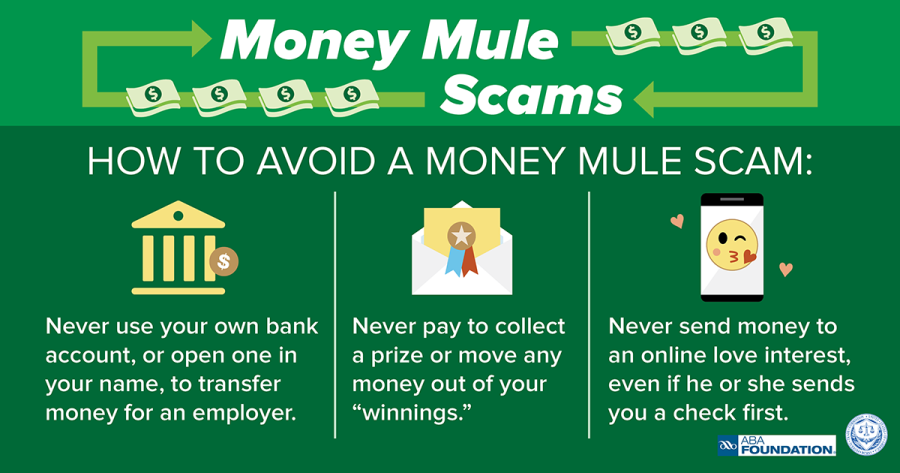Remote Work Dreams? Beware of Scams!

Author: Adam Collins
With the rise of remote work opportunities, it has become increasingly convenient to seek and interview for jobs from the comfort of your own home. However, along with this convenience comes the risk of scammers taking advantage of unsuspecting job seekers, employing various tactics to trick and exploit individuals. One such method involves the use of instant messaging apps like Telegram Messenger for recruitment and conducting interviews.
Let's take a closer look at how these fake job scams play out and what precautions you can take to protect yourself.
Beware of the Money Mule Scam

Source: Facebook.com
A common scenario in these scams involves receiving a message from someone claiming to be a recruiter representing a well-known company. They offer you a seemingly legitimate job, such as a customer service position, and insist on using Telegram Messenger as their sole means of communication. Excited about the prospect of remote work, you engage in conversation, and the so-called recruiter asks personal questions about your background and qualifications.
After the interview, to your surprise, you are offered the job. But there's a catch – the recruiter sends you a check to set up your home office. However, before you get too excited, be cautious as this is where the scam unfolds. The check is fake, and there is no real job.
Depositing the check into your bank account may result in severe consequences, including the bank taking back the money once the fraud is discovered. Even if you followed the scammer's instructions and sent a portion of the money to someone else, you could still end up losing your hard-earned cash. Worse, you can be looped into a money mule scam that they will use in money laundering schemes.
Protect Yourself from Remote Job Scams

Source:unsplash.com
To avoid falling victim to these scams, consider the following precautions:
Verify Job Openings
Always verify the legitimacy of job openings before applying. Instead of using the website provided by the caller, visit the official website of the organization or company you're applying to. Look for a dedicated "career opportunities" or "jobs" section on their website, where they typically post legitimate job listings.
Never click on any links sent to you directly, especially on instant messaging apps, they are likely phishing scams.
Research the Company
Conduct thorough research on the company or organization you are interested in. Search for reviews and complaints related to the company, using keywords such as "scam," "review," or "complaint." This will give you an idea of the company's reputation and whether there have been any reported scams associated with them.
Guard Your Personal Information
Be cautious and skeptical of anyone who demands your personal information right away, especially before any formal meeting or interview. Legitimate employers will take the time to get to know you through virtual or in-person interviews before asking for sensitive details.
Avoid Depositing Checks from Unknown Sources
Never deposit a check from someone you don't know, especially if they ask you to send a portion of the money back to them or someone else. That’s a scam. Honest employers will not conduct their business in this manner, and any such request should raise red flags.
Report Job Scams
If you encounter a suspicious job offer or suspect that you have been targeted by a scam, report it immediately to the Federal Trade Commission (FTC) at ReportFraud.ftc.gov. Reporting scams helps authorities take action and protect others from falling victim to similar schemes.
Bottom Line
While the world of remote work offers exciting opportunities, it's essential to stay vigilant and cautious in your job search. Be aware of potential job scams that may come your way, especially when using instant messaging apps like Telegram Messenger.
By verifying job openings, researching companies, protecting your personal information, and avoiding suspicious checks, you can safeguard yourself from falling prey to scammers and focus on finding legitimate remote work opportunities. Remember to report any scams you encounter to the FTC to contribute to the fight against fraudulent activities in the job market.
Image source: unsplash.com
Report a Scam!

Have you fallen for a hoax, bought a fake product? Report the site and warn others!
Scam Categories
Help & Info
Popular Stories
As the influence of the internet rises, so does the prevalence of online scams. There are fraudsters making all kinds of claims to trap victims online - from fake investment opportunities to online stores - and the internet allows them to operate from any part of the world with anonymity. The ability to spot online scams is an important skill to have as the virtual world is increasingly becoming a part of every facet of our lives. The below tips will help you identify the signs which can indicate that a website could be a scam. Common Sense: Too Good To Be True When looking for goods online, a great deal can be very enticing. A Gucci bag or a new iPhone for half the price? Who wouldn’t want to grab such a deal? Scammers know this too and try to take advantage of the fact. If an online deal looks too good to be true, think twice and double-check things. The easiest way to do this is to simply check out the same product at competing websites (that you trust). If the difference in prices is huge, it might be better to double-check the rest of the website. Check Out the Social Media Links Social media is a core part of ecommerce businesses these days and consumers often expect online shops to have a social media presence. Scammers know this and often insert logos of social media sites on their websites. Scratching beneath the surface often reveals this fu
So the worst has come to pass - you realise you parted with your money too fast, and the site you used was a scam - what now? Well first of all, don’t despair!! If you think you have been scammed, the first port of call when having an issue is to simply ask for a refund. This is the first and easiest step to determine whether you are dealing with a genuine company or scammers. Sadly, getting your money back from a scammer is not as simple as just asking. If you are indeed dealing with scammers, the procedure (and chance) of getting your money back varies depending on the payment method you used. PayPal Debit card/Credit card Bank transfer Wire transfer Google Pay Bitcoin PayPal If you used PayPal, you have a strong chance of getting your money back if you were scammed. On their website, you can file a dispute within 180 calendar days of your purchase. Conditions to file a dispute: The simplest situation is that you ordered from an online store and it has not arrived. In this case this is what PayPal states: "If your order never shows up and the seller can't provide proof of shipment or delivery, you'll get a full refund. It's that simple." The scammer has sent you a completely different item. For example, you ordered a PlayStation 4, but instead received only a Playstation controller. The condition of the item was misrepresented on the product page. This could be the